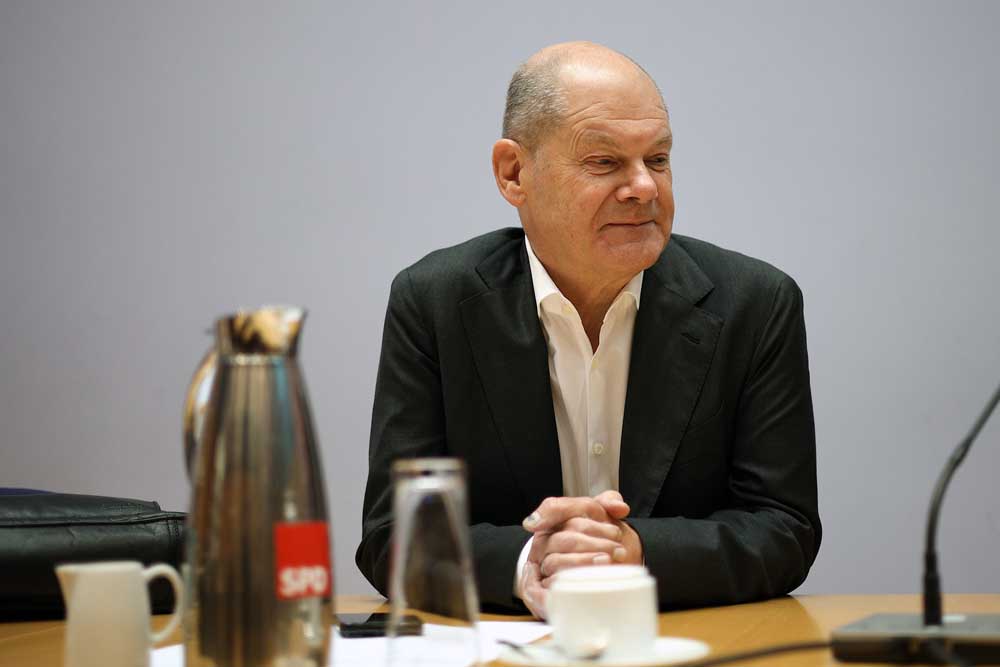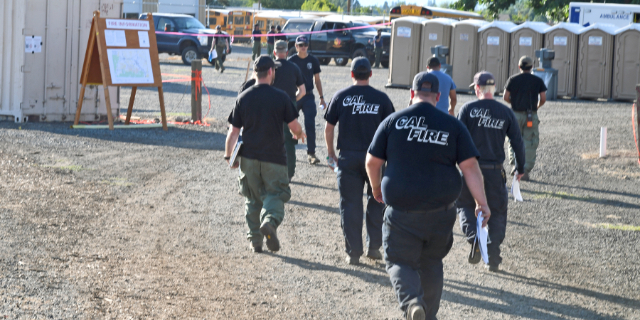Scholz on COP29: ‘Not perfect, but we can keep going with this’
Published 12:00 pm Sunday, November 24, 2024

- German Chancellor Olaf Scholz attends a meeting of the SPD party executive committee in the Willy Brandt House on Nov. 11, 2024, in Berlin, Germany. (Christian Marquatdt/Pool/Getty Images/TNS)
BERLIN — Following the disappointing close of the COP29 World Climate Conference in Azerbaijan on Sunday, the German government sought to draw some positives and talk up future goals.
Trending
German Chancellor Olaf Scholz said in a post on X that the outcome was “not perfect, but we can keep going with this,” admitting that countries around the world must still increase their efforts together.
Germany’s Foreign Minister Annalena Baerbock of the country’s Greens earlier said: “We know that our decisions today alone will not be enough to meet all the needs,” but noted that the participating states had agreed that funding needed to be increased.
Germany’s Development Minister Svenja Schulze meanwhile said “the results from Baku are no cause for celebration, the progress made is too small for that.” But: “In future, more people will take on responsibility than before,” she added.
Trending
The event, which was extended by 30 hours to resolve the financial commitments of participants, was close to failing before a compromise was reached.
However, several countries were still outraged at the outcome, with Nigeria’s representative calling the $300 billion asked annually of industrialized countries until 2035 a “joke” and an “insult.”
Germany, meanwhile, sought solace in the wider possibilities that emerged.
A commitment by a small group of industrialized countries will now become a “joint global task” to which other countries will also contribute, according to Schulze. “That is an important signal.”
It was crucial that private investments worldwide are channeled into climate-friendly paths on a major scale. This was reflected by the new overall target of $1.3 trillion annually through 2035 to help poorer countries fight climate change, she noted.
“This can be achieved through good framework conditions, government incentives and fair international cooperation,” said Schulze.
Economy Minister Robert Habeck focussed on the same points: “In view of the tense global situation, this is a success for international cooperation.”
The negotiations at UN level were working, even if there were still many unresolved issues that would need to be discussed in the coming year, he noted.
“It is pleasing that the states have adopted solid rules for the carbon markets as part of the Paris Agreement and that these mechanisms can now be utilised,” said Habeck.
Even holdouts such as Saudi Arabia “will not be able to stop the real market forces that have long since decided in favour of renewable energies and the climate-neutral transformation,” he added.
_____









